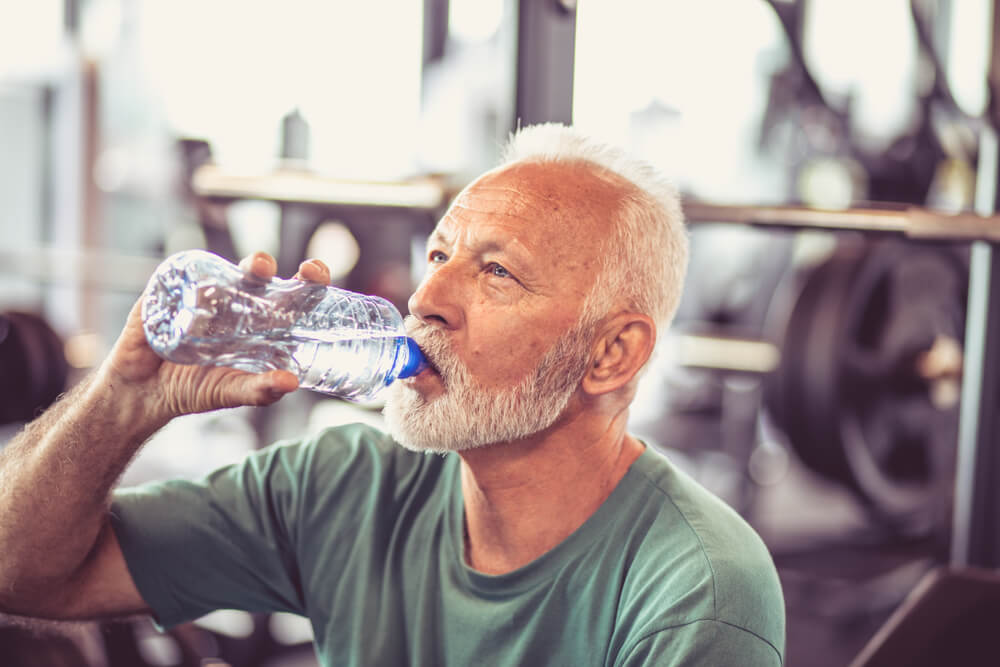
How Extreme Heat Affects Brain Health: 10 Ways to Stay Safe in the Heat


The Hidden Risk of Heat Waves: What They Mean for Your Brain
Hardly a day passes without a worrying story on the news about wildfires, droughts, or mercury-busting temperatures affecting people across the globe on an unprecedented scale.
While most of us are aware of the summer risks of dehydration, heat exhaustion, and skin cancer, brain health often goes unnoticed as a negative side effect of our warming planet. Heat exposure can devastate the human brain and have potentially damaging long-term effects.
It is crucial to understand the effects of hot weather on the body and know how to protect yourself during the peak summer months. This article will explore some practical tips to help you stay safe in the heat.

Cognitive Effects of Heat Exposure
In a heat wave, the brain changes because of the higher temperatures. Recent studies have shown that our globally rising temperatures can lead to cognitive impairments such as difficulties in decision-making and memory.
Hyperthermia, or heat sickness, can cause a range of symptoms including fatigue, difficulty concentrating, migraines, seizures, stroke, and even certain forms of dementia. And as temperatures continue to rise, so does the incidence of hyperthermia. Older adults may be particularly susceptible to its detrimental effects.
Dehydration and heat-related conditions can disrupt the blood flow that supplies essential nutrition and oxygen to our brains.
Furthermore, heat exposure can lead to neuroinflammation, or inflammation in the brain, because high temperatures can weaken the blood-brain barrier and permit inflammatory molecules. This heat-related inflammation in the brain can contribute to cognitive decline, increase the risk of neurodegenerative diseases, and worsen mental health conditions like anxiety and depression.

Why Extreme Temperatures can Harm Your Brain
NASA notes that 2024 was the hottest year in recorded history (since 1850), part of an overall warming trend over the last four decades. With global temperatures increasing, avoiding extreme heat exposure and keeping cool during summer is more vital than ever. Taking the correct precautions, especially during unusually hot periods or heat waves, will reduce the risk of heat-related conditions including migraines, seizures, stroke, and some forms of dementia, including Alzheimer’s disease.
Following some essential but simple tips can protect brain health during hot spells and heat waves:
10 Ways to Protect Your Brain During Heat Waves
- Stay Hydrated – As temperatures soar, keeping your body hydrated is crucial. Drink plenty of water throughout the day, even if you don’t feel thirsty. Opt for water-rich foods like fruits and vegetables to replenish electrolytes and prevent dehydration. Watermelon, cucumbers, and strawberries not only supply additional fluids but also offer electrolytes and vitamins.
- Dress Right – Wear light-colored, loose-fitting clothing made from breathable materials to stay cool in hot weather. Protect yourself from the sun by wearing a wide-brimmed hat and sunglasses with UV protection.
- Find the Shade – When the heat becomes intense, find shade to take a break from direct sunlight. Whether outdoors or indoors, staying in the shade helps lower your body temperature and reduces the risk of heat-related illnesses. Even carrying an umbrella on a sunny day can help beat the heat.
- Take it Easy Outdoors – During peak heat hours (10 a.m. to 4 p.m.), try to avoid strenuous outdoor activities. If you need to exercise or work outside, do so during the cooler morning or evening hours when the sun is less harsh than mid-day.
- Cool Down Effectively – Use cooling methods like cool showers, damp towels, or fans to lower your body temperature. If you can’t cool down in an air-conditioned area, at least ensure you have a well-ventilated space to prevent overheating.
- Eat Healthy – Boost your brain’s function by eating healthy foods such as fruits, vegetables, whole grains, healthy fats, and lean proteins, like the foods found in the MIND diet.
Foods rich in nutrients support brain health and may even prevent age-related cognitive decline.
- Brain Exercise – Stimulate your brain regularly with puzzles, games, or activities that require critical thinking and problem-solving. It’s important to keep your mind active to maintain cognitive function, especially during extreme heat.
- Be Prepared – Prepare for upcoming heat waves by keeping an eye on weather forecasts and heat advisories. You should take precautions and protect your brain health in extreme temperatures by planning ahead.
- Screen Time – Too much exposure to electronic devices like smartphones and computers isn’t good during extreme heat. Mental fatigue from excessive screen time may be exacerbated by heat
- Sleep Well – Healthy brains require restful sleep. Create a cool and comfortable sleeping environment to promote quality sleep during hot nights.
How to Support Your Brain Health in a Warming World
While we’ve all noticed an increase in temperatures, fewer people recognize the impact extreme heat can have on brain health. Understanding the risks associated with extreme heat is vital for safeguarding our own overall health, including our brain health.
At Aviv Clinics, we specialize in helping individuals protect and enhance their brain health. Using interventions like hyperbaric oxygen therapy (HBOT), cognitive exercises, physical training, and nutritional guidance, the Aviv Medical Program supports healthy aging, resilience, and mental clarity— even under challenging conditions. Each Aviv Clinics’ client receives a personalized treatment plan based on their medical history, physician assessment, and recovery goals.
If you’re concerned about how extreme temperatures may be affecting your cognitive function or overall health, the Aviv Medical Program may help.
Contact Aviv Clinics to learn more about how we can support your brain and body health, no matter the season.
Last Update: July 22, 2025
Aviv Medical Program provides you with a unique opportunity to invest in your health while you age





